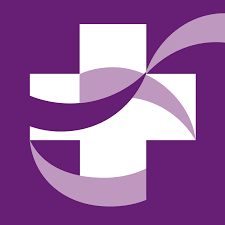Christus Health hiring for Advanced Patient Care Tech Emergency Department/ PER Diem jobs in Santa Fe, NM, US
Description
POSITION SUMMARY: The APCT is responsible for quick reaction and competent care of patients with emergency situations that arrive at the hospital. Monitors patients, collects information and documents data. Inserts and removes peripheral intravenous therapy lines under the direction of the physician/nurse. Performs blood collection, and Foley catheter placements. Performs wound care and dressing changes; applies plaster and fiberglass splints, casts and traction devices. Performs bedside testing such as oximetry, glucometery, and other point of care tests. Operates and monitors patient monitoring systems specific to unit. Specific duties include: insures cleanliness of unit, cleans and stores equipment and empties sharps containers. Documents all interventions and data, communicates with the primary nurse on findings and interventions.
The APCT stocks medical supplies and paper goods; inventories and processes broken equipment as required; assists physicians and nurses with procedures under their direction; assures proper storage of E-cylinders (oxygen); organizes care in a manner that contributes to the overall quality of the team; and performs other job duties as assigned, within their scope of practice. The APCT is a vital part of the ED team and acts as a mentor and preceptor to new staff.
Requirements
MINIMUM QUALIFICATIONS:
EDUCATION: High School diploma or equivalent plus trade or vocational school in medical/
surgical patient care.
CERTIFICATION/LICENSES: Current BLS issued through American Heart Association is required. Proof of EMT course completion or completion of 1st level of nursing school required. Two (2) years of experience as CNA or CMA can substitute for course completion. De-Escalation certification preferred.
SKILLS:
- Must have critical thinking skills and the ability to prioritize quickly
- Knowledge of methods and techniques of:
- Emergency medical response
- Principles of emergency medical service provision
- First aid and life support
- Ability to operate and maintain emergency medical apparatus and equipment
- Excellent communication skills
- Ability to read and interpret technical reports, charts, etc.
- Ability to write concise reports
- Ability to handle a high level of stress and to maintain composure under a variety of adverse conditions
- Computer skills required to enter data and generate reports.
EXPERIENCE: One year EMT, CNA or CMA experience preferred.
NATURE OF SUPERVISION:
-Responsible to: Reports directly to ED Director/ED Clinical Manager or designee for essential job duties and day-to-day responsibilities.
ENVIRONMENT:
- Bloodborne pathogens - B
Works irregular hours. Multiple simultaneous activities around patient care. Exposure to x-rays and infectious diseases such as hepatitis-B and AIDS. In addition, may be subject to varying unpredictable situations such as violence from mentally unstable patients.
PHYSICAL REQUIREMENTS: Must be able to handle emergency/crisis situations, prolonged, extensive or considerable standing/walking, kneeling, bending, and heavy lifting. Has knowledge of and uses good body mechanics. Frequently lifts, positions, pushes and/or transfers patients or equipment. Hearing and visual acuity must be within normal limits. Manual dexterity and fine motor coordination required. The work is not only physically strenuous but can be stressful, sometimes involving life-or-death situations and suffering patients.
